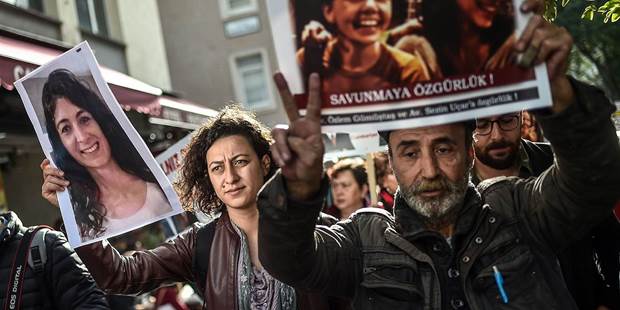Courtney C. Radsch
Courtney C. Radsch, former advocacy director at the Committee to Protect Journalists, is the author of Cyberactivism and Citizen Journalism in Egypt: Digital Dissidence and Political Change.
-
Facebook Should Ban More World Leaders

Facebook Should Ban More World Leaders
Jul 19, 2021 Courtney C. Radsch urges the social-media giant to deplatform all who misuse it to target their citizens.
-
An Interview with Courtney C. Radsch

An Interview with Courtney C. Radsch
Jun 30, 2020 Courtney C. Radsch addresses journalism’s racism problem, explains why criminalizing disinformation is not the answer to “fake news,” and touts one of the most important books she has read.
-
America’s Cops Must Stop Attacking Journalists

America’s Cops Must Stop Attacking Journalists
Jun 11, 2020 Courtney C. Radsch highlights a disturbing trend of targeted violence by police against journalists covering protests.
-
When Fighting Fake News Aids Censorship

When Fighting Fake News Aids Censorship
Mar 1, 2018 Courtney C. Radsch shows how official measures to contain the spread of misinformation are victimizing legitimate journalists.








